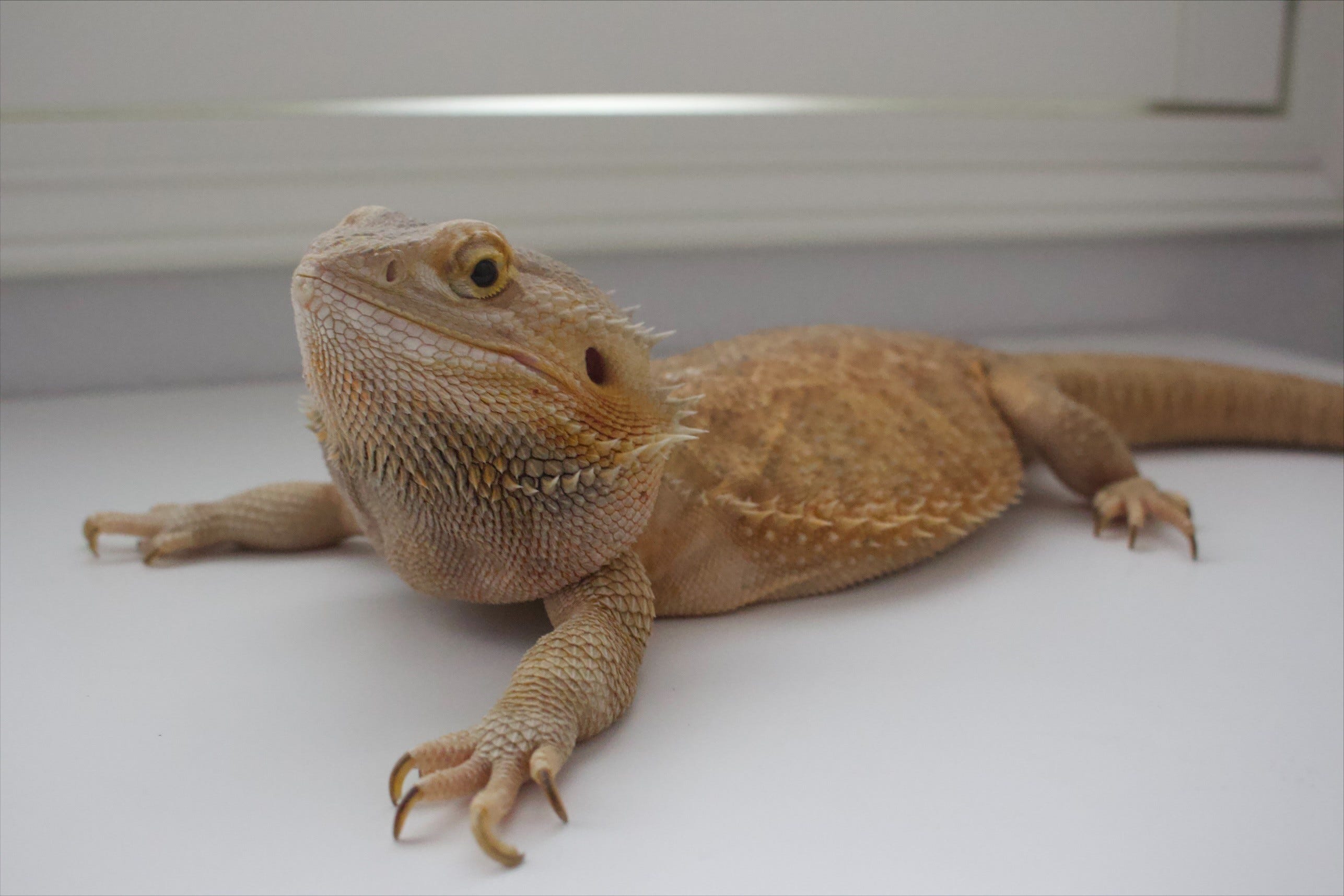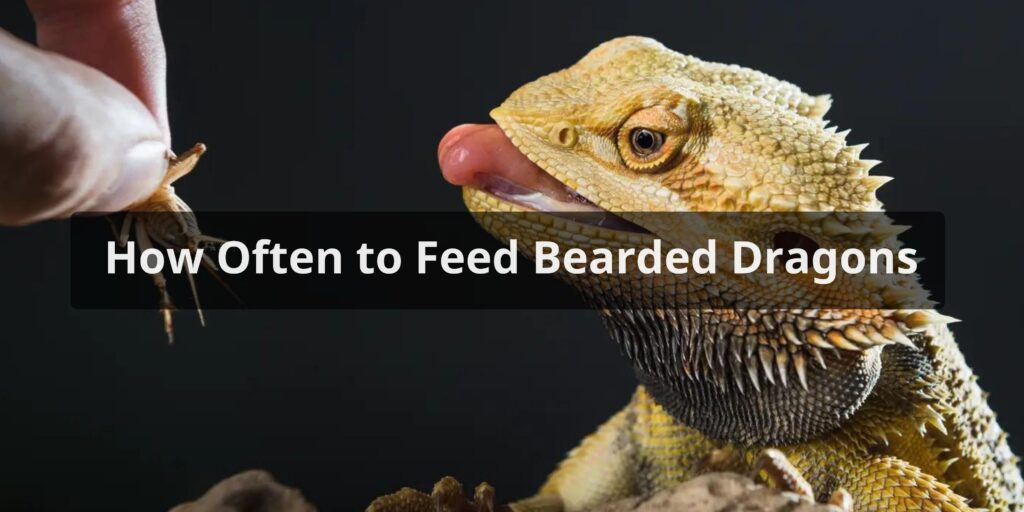Bearded dragons are popular pet lizards known for their docile nature, unique appearances, and relative ease of care. An important aspect of properly caring for a bearded dragon is establishing a proper feeding routine. Determining how often to feed bearded dragon depends on the dragon’s age, size, and overall health.
Feeding Frequency for Juvenile Bearded Dragons

Young, growing bearded dragons under 1 year old have voracious appetites and need to be fed two to three times per day. Their rapid growth rate requires the added calories and nutrition.
Aim to feed juveniles reptile-specific feeder insects two to three times daily. Good options include crickets, mealworms, black soldier fly larvae, and dubia roaches. Dust insects with calcium powder at least one feeding per day, and multivitamin powder two or three times per week. Offer greens lightly dusted with calcium daily, even though juveniles may not eat them readily.
Divide the daily allotment of bugs into two or three feedings spaced throughout daylight hours. Allow juveniles 10-20 minutes to eat their fill at each feeding. Remove uneaten insects to prevent over-snacking.
Feeding Frequency for Adult Bearded Dragons
Adult bearded dragons over 1 year old can be fed once or twice daily. Their growth has slowed at this point, so they do not need as large of quantities.
Offer adult bearded dragons mostly green vegetables each day, such as collard greens, mustard greens, turnip greens, dandelion greens, and squash. Dust the salad lightly with calcium powder daily.
Feed bugs once or twice daily. Good options include crickets, dubia roaches, mealworms, and black soldier fly larvae. Portion sizes of bugs for adults should be equivalent to the space between the dragon’s eyes. Dust bugs with calcium powder 3-4 times weekly, and multivitamin once or twice weekly.
Divide the daily allotment into two smaller meals, spaced out through daylight hours. Allow 10-15 minutes for feeding time. Remove uneaten bugs. Do not leave insects in the tank unattended, as they may stress dragons or even nibble on them while sleeping.
Adjusting Feeding Frequency
The ideal feeding frequency for a specific bearded dragon depends on factors like age, weight, and activity level. Here are some signs it may be time to adjust schedule:
- Lethargy/weakness: Feed an extra meal daily. Consider higher-calorie feeders.
- Obesity: Cut back to 1 feeding daily max. Increase vegetable ratio.
- Rapid weight loss: Add extra feeding. Increase portion sizes.
- Lack of interest in food: Can indicate illness; have vet check for parasites/disease.
- Not eating bugs: Try different insect varieties. Make sure bugs are appropriately sized.
- Not eating greens: Offer more variety. Hand-feed small amounts to encourage interest.
Monitor your dragon’s growth, weight, and eagerness at feedings. Ask your exotic vet for diet advice if concerned your dragon is over- or underweight. Adjust schedules gradually over a week or two to prevent digestive issues.
Conclusion
Determining the proper feeding frequency for a bearded dragon involves balancing the dragon’s age, size, and health. While juveniles under 1 year need multiple feedings per day to support growth, adult dragons can be fed just once or twice daily. Adjust frequency based on appetite, weight changes, energy levels, and veterinary advice. Offering a varied diet with plenty of leafy greens and dusted bugs will help keep your dragon healthy and thriving.
FAQs About How Often to Feed Bearded Dragon
How often should I feed my bearded dragon?
Bearded dragons require daily feedings when they are young and growing, typically up to 3 times a day. As they mature, their feeding schedule changes to once a day as juveniles and eventually every other day as adults.
What is the feeding schedule for juvenile bearded dragons?
Juvenile bearded dragons should be fed once a day to support their rapid growth and development. Offer a variety of insects and vegetables to ensure a balanced diet.
How frequently should I feed an adult bearded dragon?
Adult bearded dragons have a reduced metabolic rate and should be fed every other day. This helps maintain their health and prevents obesity. Adult diets should consist mainly of vegetables with occasional insect treats.
Do bearded dragons have different feeding requirements based on age?
Yes, bearded dragons have varying feeding requirements based on their age and growth stages. Young dragons need more frequent and protein-rich meals for growth, while adults thrive on a less frequent diet with an emphasis on vegetables.
Can I overfeed my bearded dragon by feeding them too often?
Yes, overfeeding can be a concern if you feed your bearded dragon too often or provide excessively large portions. Overweight dragons can suffer from health issues, so it’s crucial to follow age-appropriate feeding schedules and portion sizes to maintain their well-being.




